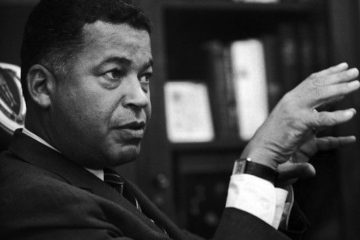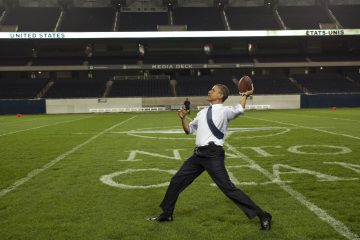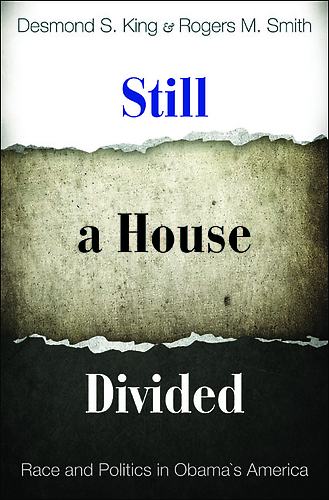
Remembering the first African American elected to the US Senate — a Republican
Sadly but not surprisingly overlooked, Tuesday will be the 50th anniversary of the election of Edward Brooke to the US Senate. On 8th November 1966, Brooke became the first African American to be popularly elected to the Senate, representing Massachusetts as a Republican, which at the time was 97.8% white and had voted 67% Democratic in the previous presidential election. It was one of the highlights of my life to interview Brooke seven months before he died. Brooke was one of the last of a generation of black leaders who personally knew someone who had been born into slavery. Brooke’s grandfather (and namesake) was born a slave on a plantation near Fredericksburg, Virginia. Brooke described him to me as follows: …

Primaries as Sports and Spectacle: Sports Metaphors in Twenty-First Century Presidential Primary Debates
‘The Brawl Begins’, an article about the 2016 primaries in The Economist provides the most overt manifestation of how a discourse of sports has permeated contemporary political reporting. Describing elections as a “jaw-dropping spectacle” or referring to the Iowa caucuses as the “opening round” in a political boxing match, a prime example of horse-race journalism, is particularly prevalent in presidential primary elections. This is due to the lengthening of the primary period and the truism that the “newsworthiness of what a candidate says about public policies is limited” because “once a candidate makes known his position on an issue, further statements concerning that issue decline in news value”.[1] In these elections, televised debates – which Craig Allen Smith compares to the Super Bowl, …
The U.S. Needs a Grand Strategy, Not Grandstanding
In the New Hampshire debate, Mitt Romney trumpeted his willingness to engage China in a trade war. Romney’s longstanding efforts to paint himself as someone willing to stand up to China exemplify an alarming trend of China-bashing in U.S. politics. Rick Santorum, among others, has echoed Romney, declaring, “I want to beat China.” Such statements are primarily targeted at shoring up political support and secondarily at painting President Obama as being soft on China. We should not take them as an accurate indication of future policy. And despite this overriding political calculus, these remarks are on to something – Beijing’s currency manipulation gives China a competitive advantage in global trade, and its abuse of intellectual property rights ought to be …

The Politics of Race: Book Launch for “Still a House Divided” by Desmond S. King & Rogers M. Smith
On Friday, 11 November, 2011, Nuffield College hosted a panel of scholars in the field of American politics, identity, and race, to discuss the September 2011 publication of Still a House Divided: Race and Politics in Obama’s America by Desmond S. King and Rogers M. Smith. The dialogue that ensued engaged the authors with a series of questions surrounding the book’s central thesis: despite the real progress in racial equality achieved by the 1960s civil rights legislation, the United States political institution has been caught in between two modes of conceptualizing, and enacting policy, about race— both of which have failed to close the tremendous gap in racial disparities in social and economic welfare that are a legacy of American …









